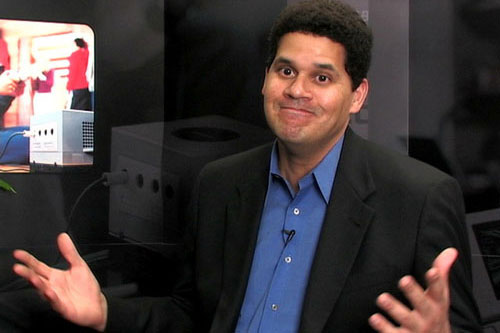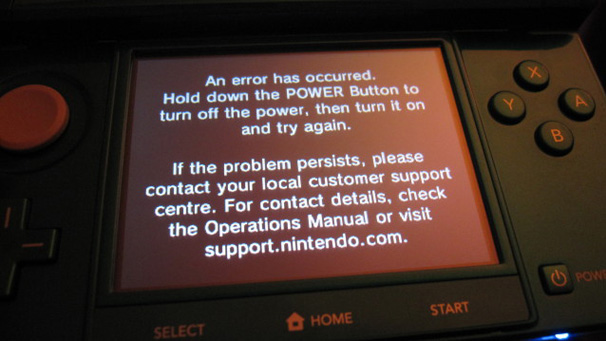This post has not been edited by the GamesBeat staff. Opinions by GamesBeat community writers do not necessarily reflect those of the staff.

“Blasphemy!” I hear everyone cry. “Nintendo has made some of the best systems ever!” And I have to agree. Who can forget playing Tetris or Super Mario Land on the Game Boy or the technically impressive Rogue Squadron, an exclusive to the little purple lunchbox called the GameCube? And dare I say that the Nintendo Entertainment System and the Super NES are tied for the best retro console ever made as both hold some of the best video game libraries known to humankind. Nintendo has formed many a childhood memory, and I’ll be the first to say that all gamers should own at least one of Nintendo’s consoles, but I’m beginning to think that they shouldn’t have to.
It’s a joke that the only reason to own a Nintendo system is to play first-party games, but it’s becoming increasingly unnerving just how true that statement is. The last three generations have seen some amazing experiences — many of them developed or published by Nintendo — but how many great third-party titles can you name without searching Metacritic? How about just decent? Mediocre? Therein lies my complaint.
Nintendo has always had a very unique approach; no one can fault the company for a bland design philosophy. Whatever it offers, whether a game or a system, is sure to have a spark of creation and innovation. Even in its greatest failures, Nintendo manages to turn a loss into a learning experience, with the Virtual Boy being the prime example. From one of the most awful “portable” gaming systems ever, Nintendo spawned a game franchise (Mario’s Tennis) and an idea for a later system (the 3DS).
No one questions that Nintendo is clever, inventive, and persistent. The problem is that the company’s persistence tends to dip into pure pigheadedness. Nintendo knows what Nintendo wants best, and developers be darned if they don’t conform. Whether it was the lockout chip on the NES, the 3DS’s lack of a second circle pad, the GameCube’s underwhelming specs, the Wii’s very underwhelming specs, or its infamous censorship policy, Nintendo seems to be hell bent on screwing over everyone else.
It makes me wonder, “Why is Nintendo even doing this anymore?”

Nintendo clearly dislikes playing with others, so before this point, making its own hardware was the most logical way to distribute its games. But that’s not the case anymore. New ways of distributing games are available, and although it’s hard to imagine Nintendo ever working with Sony or Microsoft, Nintendo hass no reason not try its hand at online distribution. We’ve already seen that on the Wii, Wii U, and 3DS, but buying virtually has been woefully underused due to hardware and software constraints.
The Xbox Live Arcade and PlayStation Store have become standout features on their respective consoles, yet simply speaking the word “WiiWare” will bring more sighs of disgust and confused responses than enthusiastic reactions. Nintendo continues working on improving its public image in the online space, but with the exception of the Virtual Console, their efforts have all failed. Choice after choice has been dedicated to catching up on features their competitors implemented years ago. Online marketplaces, usernames, and multiplayer are all welcome features, but the fact remains that everyone else has had them for years.
As sobering as the thought may be, the Wii U is the perfect example of Nintendo playing catch-up. I’ll be the first to say that I think the console has potential, but as Bitmob community writer Ryan Perez has expressed already, the Wii U hasn’t been distinguished enough from the Wii. Nintendo has again come at the problem of sales from another angle, but the approach has been eerily close between the consoles. Nintendo has a new gimmick and some additional features, yes, but this time the new gimmick isn’t quite so unique, and many of the new features are already available elsewhere. Did it really take Nintendo this long to realize that people don’t like memorizing multiple 12-digit Friend Codes?
Nintendo just makes bad choices — much like Sega used to — and while everything has always worked out in the past, that may not always be the case. Others like them once dominated the market, and one by one, they all fell out of the console race. That’s why my wish this holiday season is for Nintendo to abandon their hardware development.

I’m aware of how drastic a change this would be, but Nintendo wouldn’t be the first company to redirect its focus. Atari, Sega, SNK, and even Midway all made gaming hardware at one point or another, and while their successes in doing so were nowhere near Nintendo’s, the games industry eventually benefited from their failures. Each has had its share of rough patches, which was unfortunately too much for Midway, but the rise of online distribution has allowed many companies to rethink the way they do business.
Nintendo has been able to consistently make innovative, dependable systems, yet it always comes at a price. Peripherals and new methods of play, though interesting in the beginning of a system’s lifespan, drag the system down as the majority of developers will fail utilize the features properly. Both the Wii and the DS were hotly anticipated because of the new possibilities they brought, but the more time that passed, the more gamers realized that only a handful of developers were actually exploring these possibilities.
It’s enough to ask, “Why isn’t Nintendo strictly a software developer?” With Nintendo out of the console race — and possibly even the handheld race — it’d be free to make games for any system it wanted. Perhaps Nintendo could experiment with Sony’s Vita — I can only imagine what could be done with dual touchscreens or the HD graphics. Opportunities abound on iOS devices, as Nintendo could no doubt deliver some brilliant bite-sized titles without needing to worry about spending too much time or capital. And with Steam’s popularity only increasing, it would be a perfect place to begin developing games for the PC.
Nintendo has always been an innovative company, but it’s usually come at the expense of everyone working with them. Maybe it’s time that they stopped requiring others to deal with its choices and instead devoted its vast resources to exploring what other companies’ systems have to offer. One could argue that such a move would be unlike Nintendo, but I suppose that’s why this is only a Christmas wish.
